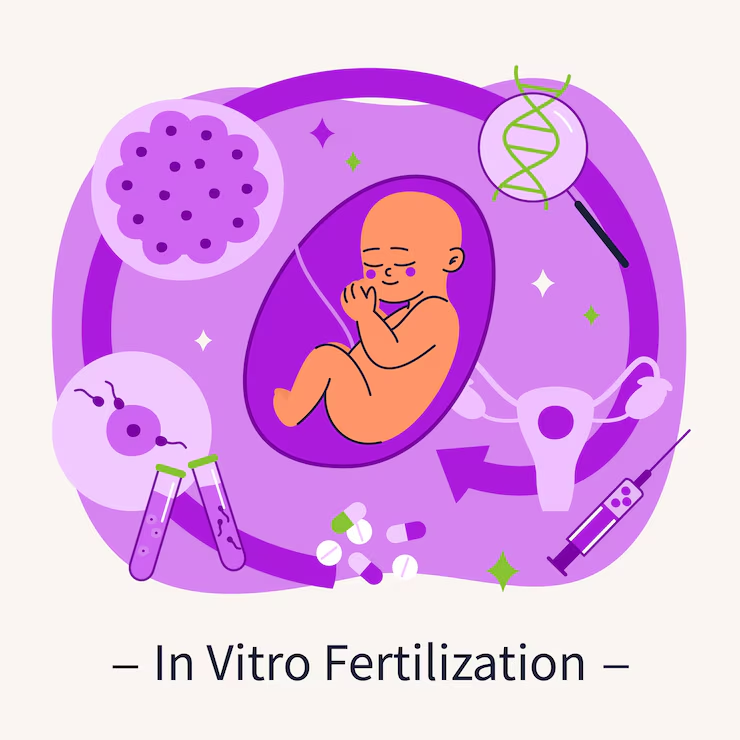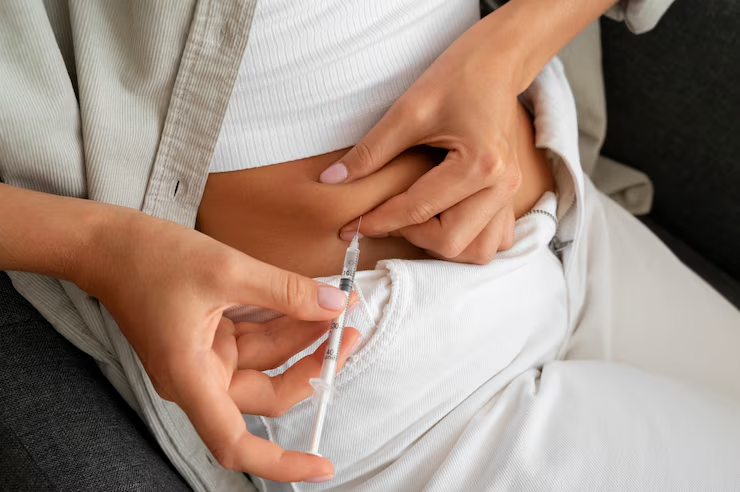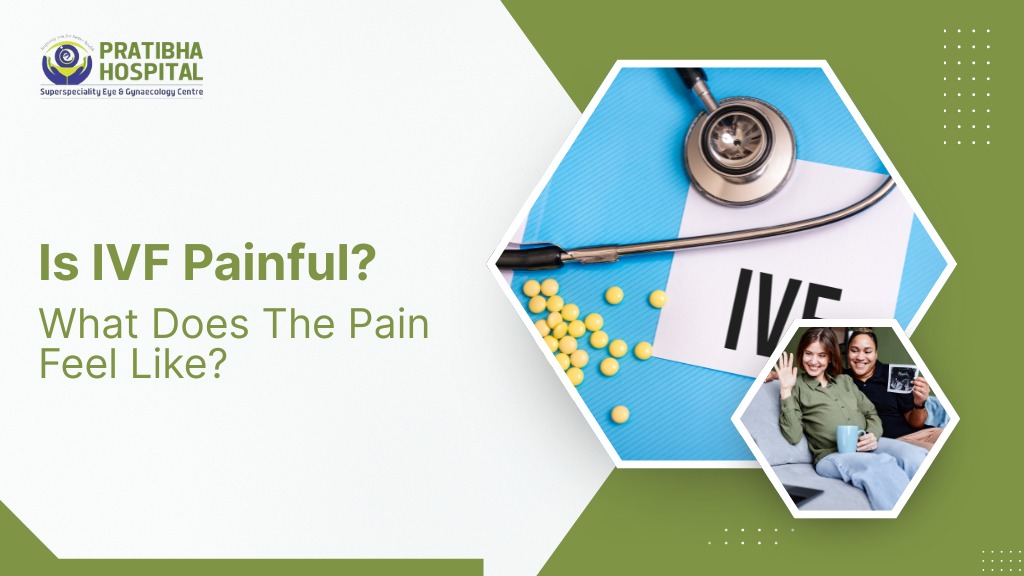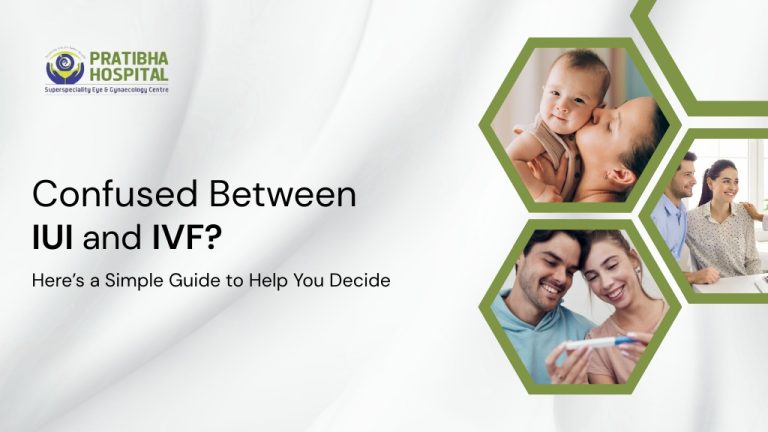Is IVF Painful? What Does The Pain Feel Like?
If you’re considering IVF, chances are you’ve already asked yourself, “Is it going to hurt?”
So many people have the same question, and it makes complete sense to ask. After all, it’s not just a medical process. This journey isn’t just medical; it pulls at your emotions, tugs at your dreams, and, yes, it can get really overwhelming.

In this blog, we’ll walk through each step of IVF and talk about how it actually feels — physically and emotionally — in the most real and honest way.
Let’s Start From The Beginning: What Is IVF?
IVF (in vitro fertilization) is a process that helps couples who are facing difficulty in conceiving naturally. Simply put, the egg is fertilized by sperm outside the body (in a lab), and then the embryo is placed into the woman’s uterus.
It sounds technical, but when explained in steps, it becomes much easier to understand. Now, let’s get to the main question: is IVF painful?
Step 1: Hormonal Injections
This is the moment where hope starts turning into action. You’ll have to take hormone injections for about 10 to 14 days. These injections help your ovaries make multiple eggs instead of just one.

So… does it hurt?
Not too much. The needles are very small (similar to insulin needles), and most women describe the feeling as a small prick. There might be a little bruising or soreness at the injection site, but it’s bearable.
Helpful Tip: Ice the injection area before use to reduce discomfort. And once you get used to it, it becomes part of your routine.
Step 2: Scans and Blood Tests
During this period, you’ll go for several ultrasounds and blood tests to check how your body is responding to the medication.
Is this step painful?
Not really. The blood tests are routine. Vaginal ultrasounds might feel a little uncomfortable at first, especially if you’re not used to them. But they aren’t painful. Some women say it’s a bit awkward, but it’s over quickly.
Step 3: Egg Retrieval
This is a small procedure where the doctor removes the mature eggs from your ovaries. It’s done under anesthesia or sedation, so you won’t feel anything while it’s happening.
What about afterward?
After the procedure, you may feel some cramping, like menstrual cramps. You might also feel bloated. It’s a bit uncomfortable at first, but give it a day or two and you’ll likely feel back to normal.
Knowing when to Get Medical Advice is important — if you experience severe pain, heavy bleeding, or fever, contact your doctor immediately
Real Talk: This is probably the most “physical” part of the process. But since you’re sedated, the actual pain is quite minimal. Just rest for a day or two.
Step 4: Fertilization and Embryo Development
This step takes place in the lab. You won’t feel anything because the work is happening outside your body. This is the step where your egg meets the sperm in a safe, lab environment — a gentle beginning to something hopeful.
This is a waiting period. No pain, just patience.
Step 5: Embryo Transfer
Now comes the embryo transfer — a quick and simple procedure. The doctor places the embryo into your uterus using a thin tube.
Does it hurt?
Not at all. It feels like a Pap smear or internal checkup. Some women don’t feel anything. Others may feel slight pressure.
You’re fully awake during the procedure and can even go home shortly after.
Step 6: The Two-Week Wait
This part isn’t physically painful, but emotionally, it can be very tough.
It takes around 10–14 days before you can check with a pregnancy test. Some women describe this time as the most stressful part of IVF.
Physically?
You might feel mild cramping or breast tenderness due to hormones, similar to early pregnancy signs or PMS.
Emotionally?
Anxiety, hope, fear… It’s all normal. This is where emotional support really helps.
So… Is IVF A Painful Process?
The honest answer is- No, IVF is not a very painful process.
Yes, it involves a few uncomfortable moments — the injections, some cramping after egg retrieval — but it’s not severe. Most women say the emotional roller coaster is harder than the physical one.
Everyone has a different pain threshold, but with the right guidance, medical care, and emotional support, IVF is manageable for most women.
What Does The Pain Feel Like?
Let’s break it down in real-life terms:
- Hormone Injections → Like a small prick or mosquito bite
- Ultrasound Scans → Slight pressure, not pain
- Egg Retrieval → Period-like cramps after, not during
- Embryo Transfer → Embryo transfer is done quickly and often feels like a routine pelvic exam without pain.
- Post-procedure cramps → Mild and temporary
If you’ve had blood draws or vaccinations before, you’ll likely find IVF procedures quite similar in terms of physical discomfort.
Tips To Reduce Discomfort During IVF
Here are some simple ways to make the process smoother:
- Stay Hydrated: Especially after egg retrieval
- Take It Easy: Don’t overwork or stress your body
- Warm Compress: Can help with cramps
- Ask Questions: Keep the conversation open with your doctor; There’s no such thing as an unimportant question.
- Stay Connected: Talk to people who’ve gone through IVF. It helps.
Conclusion
If you’ve ever asked yourself, “Is IVF painful?” that you are not alone. It’s completely natural to worry.
But now that you’ve walked through the process step by step, hopefully things feel a little clearer. IVF isn’t pain-free, but it’s not unbearable either. Most women say the experience was far easier than they expected.
Yes, it’s a journey. It requires patience, strength, and hope. But the goal — starting or growing your family — makes the road worth walking.
Whether you’re just exploring IVF or getting ready to begin, keep reminding yourself:
You’re stronger than you think.
And if you ever feel overwhelmed, talk to your doctor. Talk to your partner. Or talk to someone who’s been there. Support makes all the difference.







